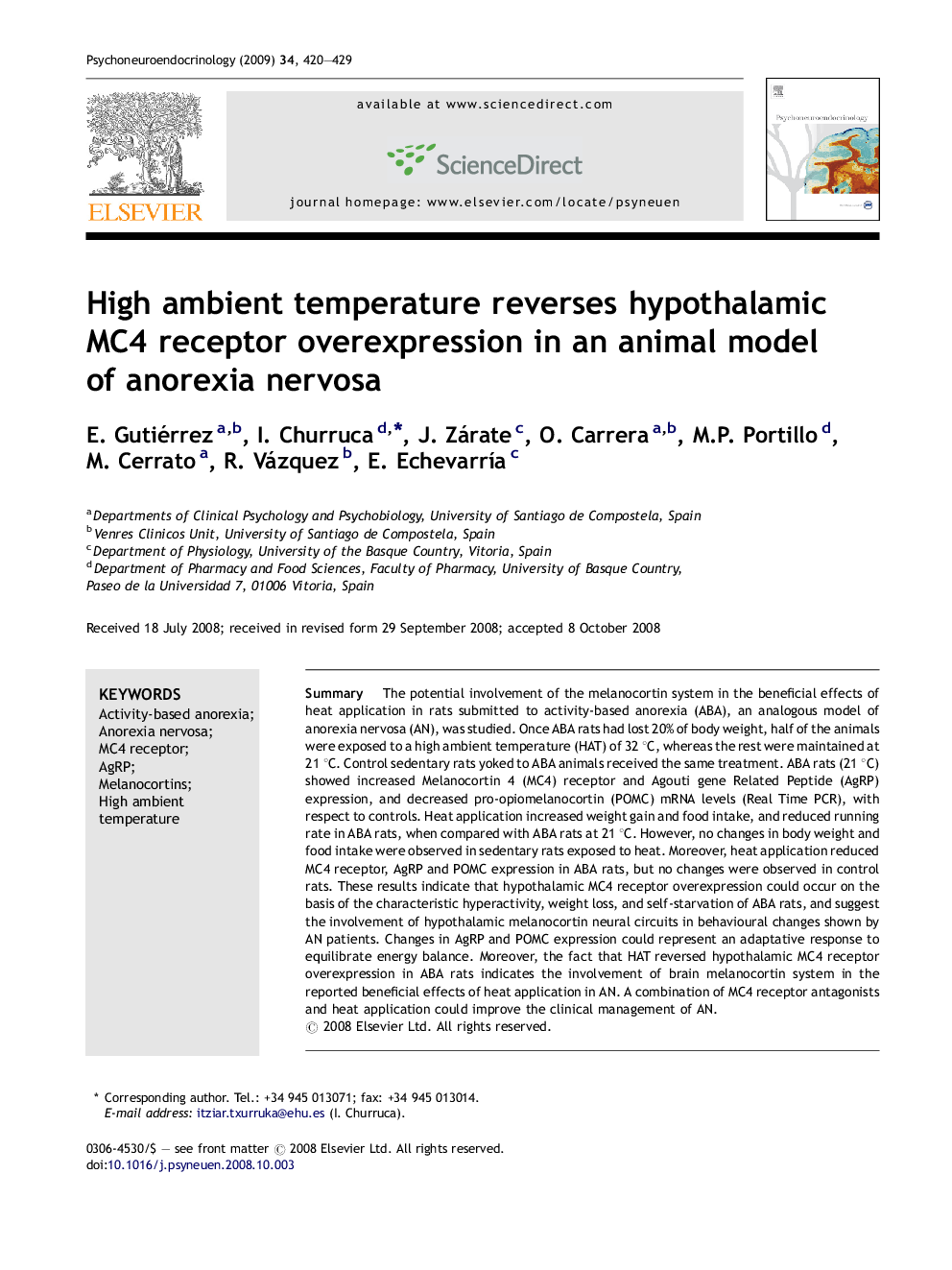| Article ID | Journal | Published Year | Pages | File Type |
|---|---|---|---|---|
| 336265 | Psychoneuroendocrinology | 2009 | 10 Pages |
SummaryThe potential involvement of the melanocortin system in the beneficial effects of heat application in rats submitted to activity-based anorexia (ABA), an analogous model of anorexia nervosa (AN), was studied. Once ABA rats had lost 20% of body weight, half of the animals were exposed to a high ambient temperature (HAT) of 32 °C, whereas the rest were maintained at 21 °C. Control sedentary rats yoked to ABA animals received the same treatment. ABA rats (21 °C) showed increased Melanocortin 4 (MC4) receptor and Agouti gene Related Peptide (AgRP) expression, and decreased pro-opiomelanocortin (POMC) mRNA levels (Real Time PCR), with respect to controls. Heat application increased weight gain and food intake, and reduced running rate in ABA rats, when compared with ABA rats at 21 °C. However, no changes in body weight and food intake were observed in sedentary rats exposed to heat. Moreover, heat application reduced MC4 receptor, AgRP and POMC expression in ABA rats, but no changes were observed in control rats. These results indicate that hypothalamic MC4 receptor overexpression could occur on the basis of the characteristic hyperactivity, weight loss, and self-starvation of ABA rats, and suggest the involvement of hypothalamic melanocortin neural circuits in behavioural changes shown by AN patients. Changes in AgRP and POMC expression could represent an adaptative response to equilibrate energy balance. Moreover, the fact that HAT reversed hypothalamic MC4 receptor overexpression in ABA rats indicates the involvement of brain melanocortin system in the reported beneficial effects of heat application in AN. A combination of MC4 receptor antagonists and heat application could improve the clinical management of AN.
